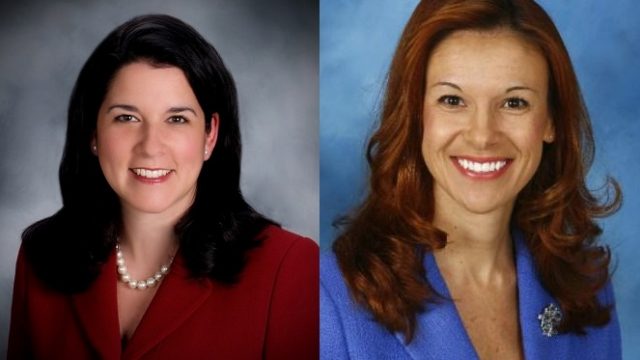Baesler, Poolman Make A Weak Case For Early Childhood Education

President Barack Obama is making a push for universal preschool nationally, and here in North Dakota a couple of Republicans have a similar agenda.
North Dakota Superintendent of Public Schools Kirsten Baesler and state Senator Nicole Poolman are calling for more funding for early childhood education. The state House stripped a $5 million appropriation for it out of HB1429, which would have allowed the superintendent to make grants to school districts for childhood programs.
Senator Poolman’s has a version of that bill (SB2229) in the state Senate, and it has been sent to the Senate Appropriations Committee with a $4.683 million price tag still intact.
Both Poolman and Baesler are arguing in favor of the funding by pointing to the achievements children already enrolled in preschools, noting that the kids who get preschool do better. “We’re scientifically learning when we can reach kids at 4, they are more likely to be successful throughout their careers,” Senator Poolman is quoted as saying.
I’m not sure how much we can “scientifically learn” without a control group. Comparing the small number of schools with pre-kindergarten education to all public schools isn’t an apples-to-apples comparison, and there are other problems too:
Baesler pointed out data from Sweetwater Elementary School in Devils Lake that tracked the progress of its students that enrolled in the school’s inaugural preschool class in 2008 until they were in fourth grade.
In the fall of their first grade year, 83 percent of students who had gone to preschool and were living in poverty and receiving free and reduced lunches were proficient in reading compared to the 78 percent of students that did not receive pre-kindergarten education.
By second grade, fall testing found 100 percent of the students with pre-K education were proficient in reading, compared to the 67 percent of students without early childhood education.
The first question is why on earth is reading proficiency falling in students from first grade to second grade? The percentage of overall students proficient in reading falls off by 11 points. Whatever else may happen with funding for early childhood education, that data point screams for attention.
The second question is, why does the study stop tracking academic outcomes after the 3rd grade? A federal Health and Human Services study, looking at Headstart the nation’s largest government preschool program, found that any academic gains from early education programs actually dissipate going into 4th grade and beyond.
And there’s a good deal of evidence to suggest that being too aggressive with early childhood education can do far more harm than good. Early childhood education “is about the simplistic notion that giving disadvantaged young children academic training will provide them with the skills and motivation to continue their education and break the cycle of poverty,” writes David Elkind, a professor of child development at Tufts University. “It is about politicians who push accountability, standards, and testing in order to win votes as much as or more than to improve the schools.”
“The idea that kids should learn to read, write, and add when they are very young has been thoroughly disproven, and in fact, this sort of structured evinronment is so bad for boys that it puts them on an early path to being labeled low performers,” writes syndicated columnist Penelope Trunk. “This is why the rich don’t even bother with preschool—they know their kids will be fine without it. And almost all the research to support preschool is based on lower-income statistics, like preschool keeps kids out of prison.”
Superficially, it might seem that more money spent on more education would be a good thing. After all, how can you be against education? And education bureaucrats always love the idea of expanded education. That means more jobs, and bigger budgets, for them.
But education is too important an area of policy for simplistic assumptions. It’s about what works for the kids, not what makes adults feel good. Let’s not assume that throwing money at early childhood education is a good thing.







